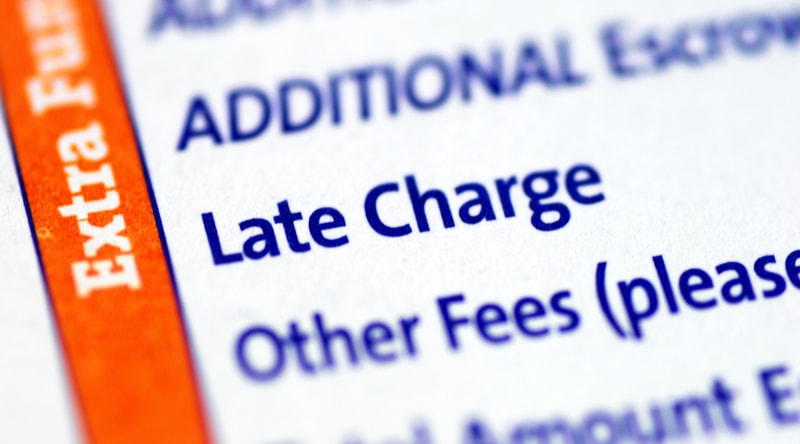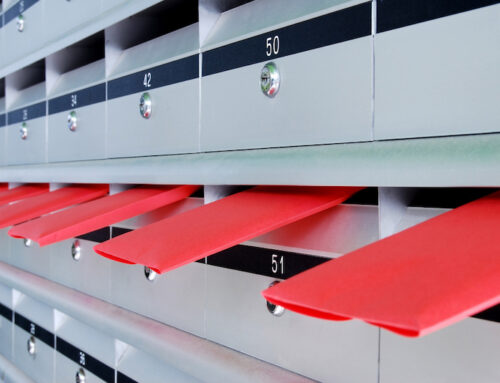One of the most common experiences that business owners share across the board when it comes to accounts receivable is the unpaid invoice. Every professional from a plumber to a physician knows firsthand how difficult it can be to get a certain percentage of people to pay their invoices in a timely manner. From small bills to huge contracts, late payments are costly for anyone running a business. They disrupt the flow of resources and hinder any business’ ability to grow and evolve while prospering.
There are so many reasons why late payments may be affecting your business. The question is, should you charge a late fee for invoices that are late or go unpaid? If so, what is an acceptable fee for that late fee? Before we address these questions, let’s start at the beginning.
A Picture Is Worth A Thousand Words
Imagine you are an artist commissioned to photograph a family portrait session for the holidays by your neighbor. The shoot is to be done at your studio and outdoors on two separate days with the family. You will then look through all the photos for hours, take the best shots, and have the family review them as proofs. They will choose the ones they want, the sizes, and the frames. You will expose them all with proper filters, print and frame them, and get them the copies and prints in time for them to send them out for their holiday greeting cards. You take the handshake deal and make the dates for the photoshoots.
Before you have even produced a single proof, you would have invested dozens of hours into this contract. Imagine that in the end, you give the photos to the family and send them a Net 30 invoice to pay within 30 days. Meanwhile, they have received the photos, sent them to their family, and moved into the new year. When it comes time to pay the bills in January, it would be much easier to overlook paying for photos that have already been sent out than not paying the electric or credit card bills.
You decide to send a reminder invoice to the family with a late-payment notice and fee, though you never discussed that in the beginning. Your neighbor becomes angry and defensive from your lack of notification of the fee in advance, and instead of paying right away, waits another month, all the while bad-mouthing you and your services to their friends. Granted this is a worst-case scenario, but still. It makes the point. From the initial consultation to the follow-up reminder, this interaction could have gone better if a few rules were followed in advance.
Spell It Out And Sign It
Even if you are entering a business agreement with a family member or friend, it is important to do it legally and properly. In the contract, spell out in no uncertain terms, your expectations for payment. At this point, you would include information about acceptable and expected payment methods (website online, credit card, cash, check, etc, and payment terms such as Net 15, 30, 45, 90, etc., or days until payment is due).
In this particular case, it would be wise to consider taking a deposit to cover the expenses and time for the consultation, photoshoots, and initial computer work. Then expect the rest of the payment when the product is delivered, rather than offering payment terms over a period of time after the photos have been received. If, however, you extend short-term, no-finance credit for a certain period of time, you would want to detail any possible late payment penalty in the contract.
What Is An Acceptable Late Fee for An Invoice?
 Standard or commonly used figures for calculating a late fee is 18% annual APR or 1.5% monthly. On a $5K bill, that works out to be about $75/month fee. It is perfectly reasonable and legal to expect to charge a fee if a client does not pay on time. Late fees can serve as a motivator to help clients prioritize you over other debtors. A small fee can create the proper sense of urgency that a client needs to make sure that they follow through with their agreement.
Standard or commonly used figures for calculating a late fee is 18% annual APR or 1.5% monthly. On a $5K bill, that works out to be about $75/month fee. It is perfectly reasonable and legal to expect to charge a fee if a client does not pay on time. Late fees can serve as a motivator to help clients prioritize you over other debtors. A small fee can create the proper sense of urgency that a client needs to make sure that they follow through with their agreement.
One of the best ways to ensure that charging a late fee is the last resort is to incentivize your client to pay in advance or at delivery with a discount or rebate. This method turns a negative into a positive by putting a spin on paying on time that puts money into your clients’ pockets. The discount you offer that becomes lost wages to you is offset for you in the fact that you are not extending credit over months with no interest to you. Consider offering discounts for prompt payment to lessen the number of clients you have that pay late.
Understanding the Reasons
It takes skill to be able to hold clients to contract expectations without offending them or losing them as a client. You must balance enforcing payment terms that you have to have to succeed with having some empathy about the things that can cause a client to delay payment. Most people are generally trustworthy and want to pay their bills on time. So, what causes someone to pay a bill late after the 30-, 60-, or 90-day due date as spelled out even in a contract?
It’s easy to attribute malice to what could otherwise be assumed to be thoughtlessness when it comes to being stiffed on a bill. You always want to look first at the possibility that your client is unhappy with your work. If that is the case, you will want to skillfully work to bring a solution to the problem. If it is not a possibility that your client is unhappy with your work which is causing them to delay payment to you, then you have to intuit what the problem might be before overreacting.
There are a few common reasons that clients pay invoices late. A family emergency or illness, an economic downturn, or a misplaced invoice can account for some of the more usual circumstances that cause late payments. Just because your client signed a contract to pay on time, doesn’t mean you have to enforce a late fee once you determine they may be suffering from some bereavement or circumstance beyond their control. By being empathetic with their circumstances and waiving the fee even just one time, you will build bonds with your client that will form longer-term relationships over time.
Automation Is the Key To Success
Professional, frequent, and timely communication is necessary in order to ensure smooth operations when it comes to payment of accounts receivable. One of the best ways to create support for successful business relations is to adopt an automated process of sending bills, invoices, and statements. This takes the human error, guesswork, and the personal out of the professional work that is being done.
 Towne Mailer offers full-service, state-of-the-art printing, and mailing for customers all over the country. From our 7,000 square foot facility in Missoula, MT, we have been helping clients just like you for over 20 years with printing and mailing solutions that really impact business flow. When you partner with us to become your printing service, you essentially add to your business with an expert team of printing and mailing specialists.
Towne Mailer offers full-service, state-of-the-art printing, and mailing for customers all over the country. From our 7,000 square foot facility in Missoula, MT, we have been helping clients just like you for over 20 years with printing and mailing solutions that really impact business flow. When you partner with us to become your printing service, you essentially add to your business with an expert team of printing and mailing specialists.
By using a reputable, online printing and mailing service to handle all processing of your client invoices, you’ll never have to worry about getting those notices out on time. Our fast, reliable 24-hour turnaround will make sure that you are not to blame for any late payments.
Reach out to us today at Towne Mailer so that we can help you streamline your business accounts payable and receivable departments and relieve you of awkward after-the-fact client negotiations. When you are looking to ease your output of energy and increase your potential, partner with the best printing and mailing specialists in the United States. We’re not saying we can eliminate all the late fees you may have to negotiate in your client contracts, but we will be able to speed up your process from print to mail with our 5-star printing and mailing services so that you can focus on your relationships, not the postage.
Request A Quote
Trusted by banks, cities, healthcare providers, and 1,000+ businesses nationwide. We print, process, and mail millions of statements every year.




